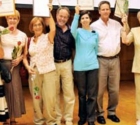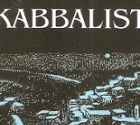
Current Israeli writers are a reflection of the immediate availability of world culture via everything available in cyberspace.
This time, as a book reviewer, I’m skipping what’s cosmopolitan on our local shelves and instead I’m perusing the output of Israeli authors translated and available to you in English. And for good measure, a few words about the roots and uprooting of current Israeli literature. Sixty-two years have passed (of course Hebrew literature existed well before the establishment of the State) and it is literally thrilling to see the flexibility of the Hebrew language. Current Israeli writers are a reflection of the immediate availability of world culture via everything available in cyberspace; trends, themes and travel abroad strongly influence how and what is written. Gone is the ponderous political and social heritage of Eastern Europe. That pervasive “building of a nation” theme no longer seems to interest Israeli writers and there is a switch to the alienated, the lonely, the individual who seeks but may not find, and the wanderer who leaves but carries Israel with him wherever he goes. Irony and black humor are trademarks of this new generation and what characterizes art, film and television “leaks” into literature. The success of Israeli films, the zooming camera’s eye, sharp scripted dialogue, has most definitely left its mark on subject matter and style.
There is nothing more challenging to today’s Israeli author than what he sees around him. Though style has changed there is no shying away from dealing with the roots of Zionism, roots now historically visible. Look for the books of Nir Bar-Am and Amir Gutfreund, two authors who have found interesting literary ways to look at the “vestiges” of the Zionist ideology. In particular I want to draw attention to The House of Rajani by Alon Hilu (Harvill Secker,UK) which is superb historical fiction (Arabs and Jews during the Ottoman period) dealing with the theme of the homeland.
The welcome and thought-provoking appearance of Arab writers and with it, literature written both by Israeli Arabs and Israeli Jews, is vigorous testimony to an intellectual freedom not present in the countries that surround Israel, though I admit that the Israeli creative community is continually challenged by the tensions of the situation. I highly recommended Dancing Arabs and Let It Be Morning by Sayed Kashua (Grove Press.) The larger theme of Kashua’s work is how language and identity are intimately related; the alienation that can happen to an individual is tied to his use of language. The New York Times and The Guardian both gave Kashua’s books high praise. Kashua also has a weekly column in the Haaretz newspaper, highly personal and highly entertaining.
Actually, it seems to me that writers in Israel are at that wonderful point in language and form where anything goes - that brings me to humor. I am an unabashed fan of Etgar Keret, whose collections of short and very short essays are superb examples of the irony and black humor that typify the raised Jewish eyebrow, the question answered with a question, the eternal “nu?” The most current Keret book in English is The Girl On The Fridge (Farrar, Straus and Giroux) but whatever title of his you find on a library or bookstore shelf is a must-read. Another truly comic view of life in Israel is Almost Dead by Assaf Gavron, which very humorously details the changing life of a hi-tech Tel Aviv thirty-something who has miraculously escaped three suicide bombings and become local society’s hero.
Other writers I have enjoyed, who are available in English translation, are Yael Hedaya (Housebroken, Accidents). She deals with family life, sex, love and death, ordinary events marked by a highlighter pen. Highly successful abroad, hers is not necessarily an Israeli “take” on everyday human relationships – if you like Amy Bloom, Penelope Lively, Lorrie Moore, you will enjoy this author. Another contemporary view of life in Israel is offered by Eshkol Nevo who has a deceptively easygoing style but with memorable layers of meaning. Try Homesick, or World Cup Wishes.
Literary language, carrying on its back a Biblical knapsack, has been supplanted by slang, the rhythm of stand-up comedy, pop stars and the language of the street – language accessible to many more readers. The wonderful English translations of these books will give you a chance to enjoy what’s current in Israeli literature. One caveat from me: These recommendations are highly personal.
Pnina Moed Kass www.pninamoedkass.com
 AMIT DRESSLER - HELPING THE LESS FORTUNATE
AMIT DRESSLER - HELPING THE LESS FORTUNATE ESRA VOLUNTEER AWARD WINNERS 2010
ESRA VOLUNTEER AWARD WINNERS 2010 FACT OVERWHELMS FICTION
FACT OVERWHELMS FICTION Robert Kwong at the Yeshiva
Robert Kwong at the Yeshiva  Friday Night with the Pope - A Book Review
Friday Night with the Pope - A Book Review The Kabbalist - A Book Review
The Kabbalist - A Book Review  Pnina Moed Kass
Pnina Moed Kass